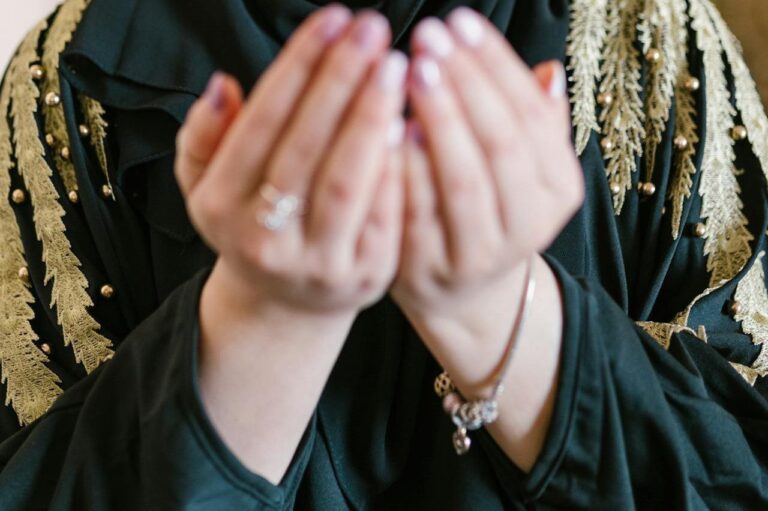Discovering the Health Benefits of Fasting in Ramadan
The holy month of Ramadan is a period of devotion and purification for Muslims around the world. Beyond the spiritual aspect, there are myriad health benefits of fasting in Ramadan that are anchored in centuries-old tradition and are increasingly validated by modern scientific research.
In this extensive exploration, we are to uncover the remarkable ways in which fasting during Ramadan can enhance physical health and fortify mental well-being unlike any other activity. For Muslims, it’s a time of devout observance and spiritual enhancement; for health enthusiasts, it’s a template for holistic mind and body wellness.
Physical Health Benefits of Fasting in Ramadan
Beyond the spiritual benefits, Ramadan offers a lot of physical health benefits of fasting. By understanding these benefits, we are able to motivate ourselves in promoting physical well-being and encouraging healthy habits throughout the life.
Improves Metabolism
Fasting in Ramadan can effectively reset one’s metabolism. The practice of fasting, which involves abstinence from eating and drinking for long hours, adjusts the body’s metabolism to utilize stored energy effectively. In the longer term, this can lead to better metabolic health, lower risks of metabolic diseases, and improved overall energy levels.
Weight Management
Ramadan can support adapting healthy eating habits and offers a number of health benefits of fasting. People tend to be more conscious of their food choices, nutrients values and frequency of meals, which can contribute to better weight management. Research has shown that weight loss ranging from 0.8 kg to 1.4 kg was appeared associated with variations in eating habits and mealtimes.
Regulate Bad Cholesterol
Above mentioned research also reveals that fasting can lead to an improvement in the levels of high-density lipoprotein (HDL) cholesterol, often referred to as ‘Good’ cholesterol. Increasing HDL cholesterol is crucial in maintaining a healthy cardiovascular system and can contribute to lowering the level of LDL (bad cholesterol), causing a lesser risk of heart disease and stroke.
Reduce Blood Sugar Levels
Some studies suggest that fasting can play a pivotal role in regulating blood sugar levels. But it is not a remedy or treatment. There are some potential risks too. The American Diabetes Association does not recommend it as a technique for diabetes management. However, some studies revealed that fasting can reduce the need for insulin in type 1 diabetes patients, promoting a healthy balance in blood sugar.
It is recommended that diabetic patient should consult with his doctor and be careful regarding eating in iftar (breaking the fast).
Strengthen Immune System
Dr Charles Patrick Davis, in his study, reveals that the cellular process called autophagy, which is kickstarted during fasting, can help in removing damaged cells and regenerating newer, healthier ones. This process boosts the body’s immune system, making it more resilient to infections and diseases. In addition, fasting can reduce the inflammatory markers, the risk of cancer and thus improve immune function.
Improve Sleep
During Ramadan, one’s sleep pattern tends to be adjusted, often leading to deeper and more restful sleep. Since the fasting hours coincide with nighttime, people often go to bed earlier and wake up at once for the pre-dawn meal. These adjustments can improve sleep quality, which is vital for overall health.
Reduce Blood Pressure
Observing the fast can lead to a significant reduction in salt and sugar intake as well as contribute to overall stress reduction. This can culminate in lowered blood pressure levels, which is beneficial for cardiovascular health. It’s a period that allows the cardiovascular system to rest and recover.
Mental Health Benefits of Fasting
Ramadan offers numerous health benefits of fasting for mental wellness.
Spiritual Connection
The practice of fasting during Ramadan represents much more than mere physical abstinence; it is a time to draw closer to God. This enhanced level of spirituality can provide a profound sense of peace and tranquility, which in turn has significant positive effects on mental health.
Mental Clarity
Many individuals report a heightened state of mental clarity and alertness during the fast. The reduction in sugar intake, coupled with the discipline of mental and physical health, can sharpen concentration and enhance cognitive function.
Self-Discipline
The act of willfully refraining from food and drink teaches self-discipline and control. Studies have shown that exercising self-discipline can lead to better emotional and mental health, as it empowers individuals with a sense of personal achievement and enhanced self-esteem.
Tips for a Healthy Ramadan
Hydration
With the fast extending over the day, it is extremely important to stay well-hydrated during non-fasting hours. Sipping water at regular intervals can prevent dehydration and related complications.
Balanced Diet
A balanced diet during pre-dawn and post-dusk meals, with a focus on whole foods and a variety of nutrients, is key to reaping the health benefits of fasting in Ramadan. Overeating and fast eating should be avoided. Pre-fasting meal will helps to maintain your energy for whole day. It is essential to consume meals that are well-balanced, consisting of complex carbohydrates, healthy fats, and proteins to sustain energy levels throughout the fasting period.
Sleep
Quality sleep is essential to support the body during the fast. It’s important to maintain a consistent sleep schedule even if it means adjusting your routine to the fasting hours. Midday nap should be exercised as it will boost the energy for night prayers.
Holistic Health in Ramadan
Fasting during the holy month of Ramadan is a practice that integrates all aspects of health—physical, mental, and spiritual. By adopting a balanced approach that includes thoughtful meal planning, mindfulness, and maintaining regular daily routines, one can experience the full range of health benefits of fasting in Ramadan.
In conclusion, fasting during Ramadan is more than a ritual; it’s a prescription for a harmonious existence—a time to refresh our bodies, minds, and souls. It’s a holistic approach to health that encompasses nutrition, physical activity, and mental well-being, with spirituality at its core. By paying close attention to what we consume and how we engage with the world during this sacred month, we can explore our potential for holistic health and enjoy the consequent benefits long after Ramadan has ended.









